Abstract
The thermal inactivation characteristics of Bacillus subtilis A spores suspended in skim milk with the use of large-scale ultrahigh temperature (UHT) processing equipment were investigated in terms of survival as measured with two plating media. Data on survival immediately after UHT treatments were recorded in temperature-survivor curves, time-survivor curves, and decimal reduction time (DRT) curves. The temperature-survivor curves emphasized that inactivation is accelerated more by increases in the treatment temperature than by increases in the exposure time. Time-survivor curves and DRT curves were not linear. Generally, exceedingly concave time-survivor curves were observed with the standard plating medium; however, only slightly concave curves were observed when CaCl2 and sodium dipicolinate were added to the medium. For a given UHT sample, larger D values were obtained by use of the medium with the added CaCl2 and sodium dipicolinate. The DRT curves of all data were concave and appeared to have two discrete slopes (zD values). The zD values observed in the upper UHT range (above 260 F; 127 C) were twice those observed at lower test temperatures.
Full text
PDF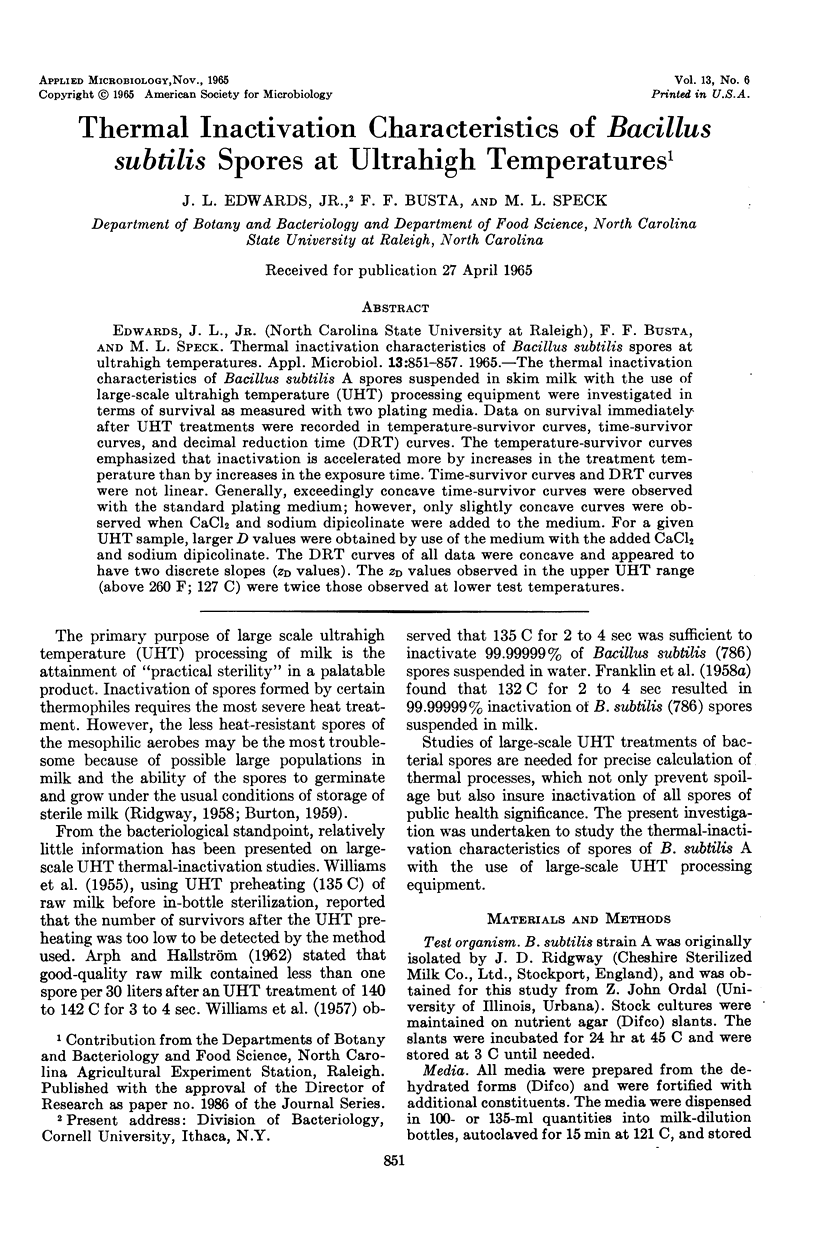
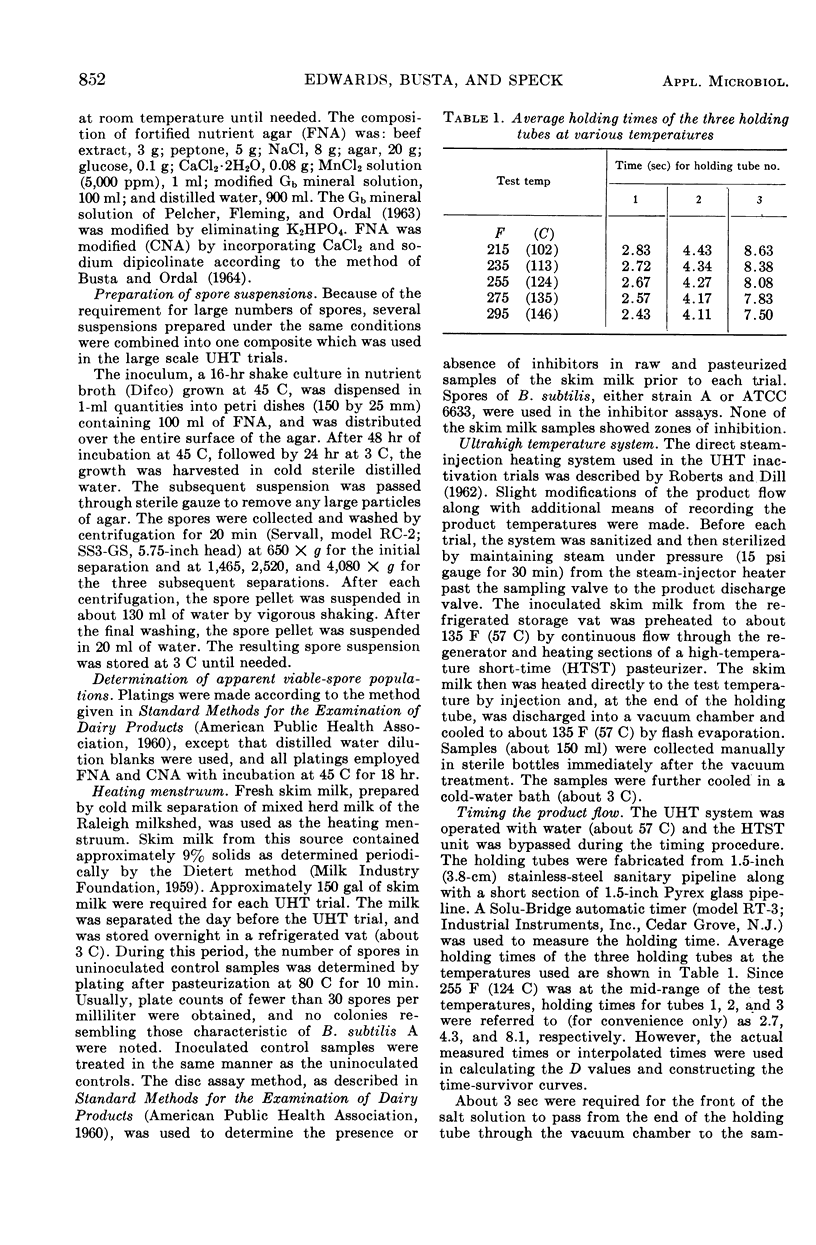
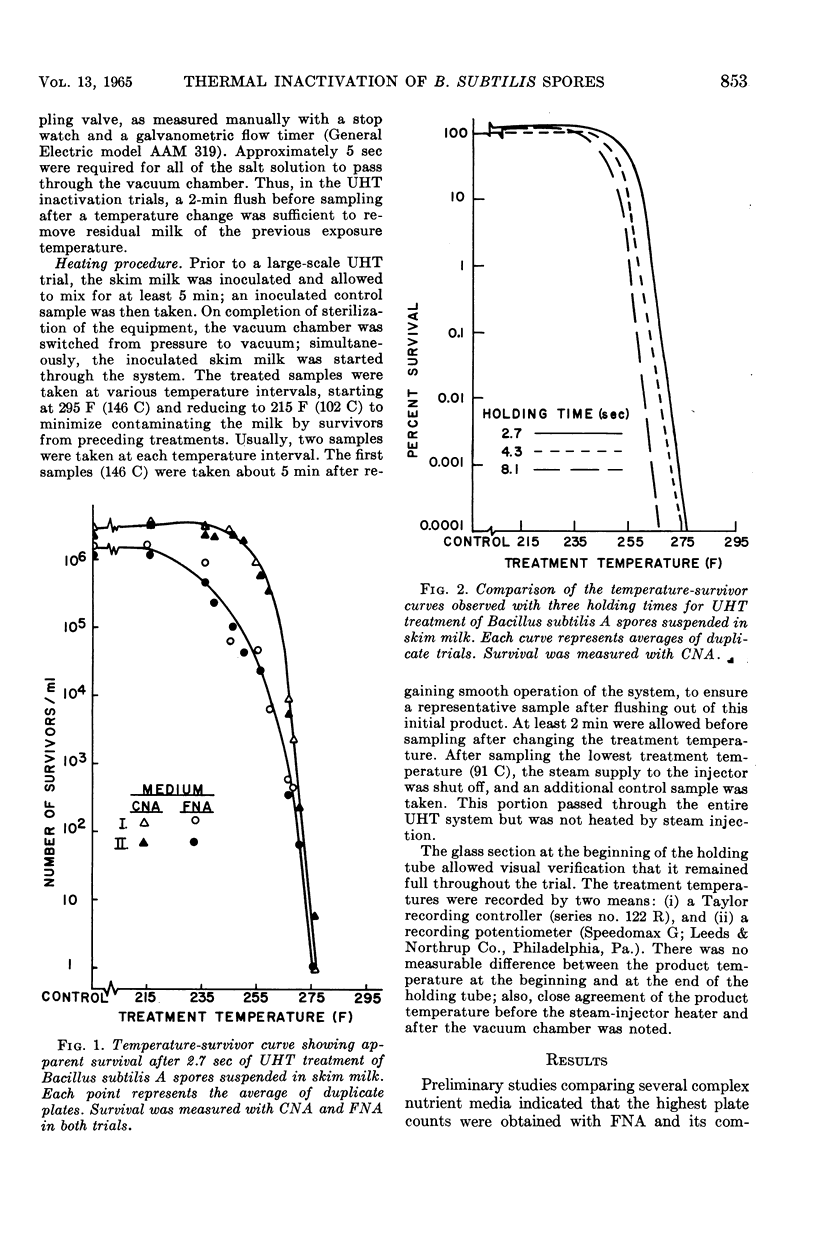
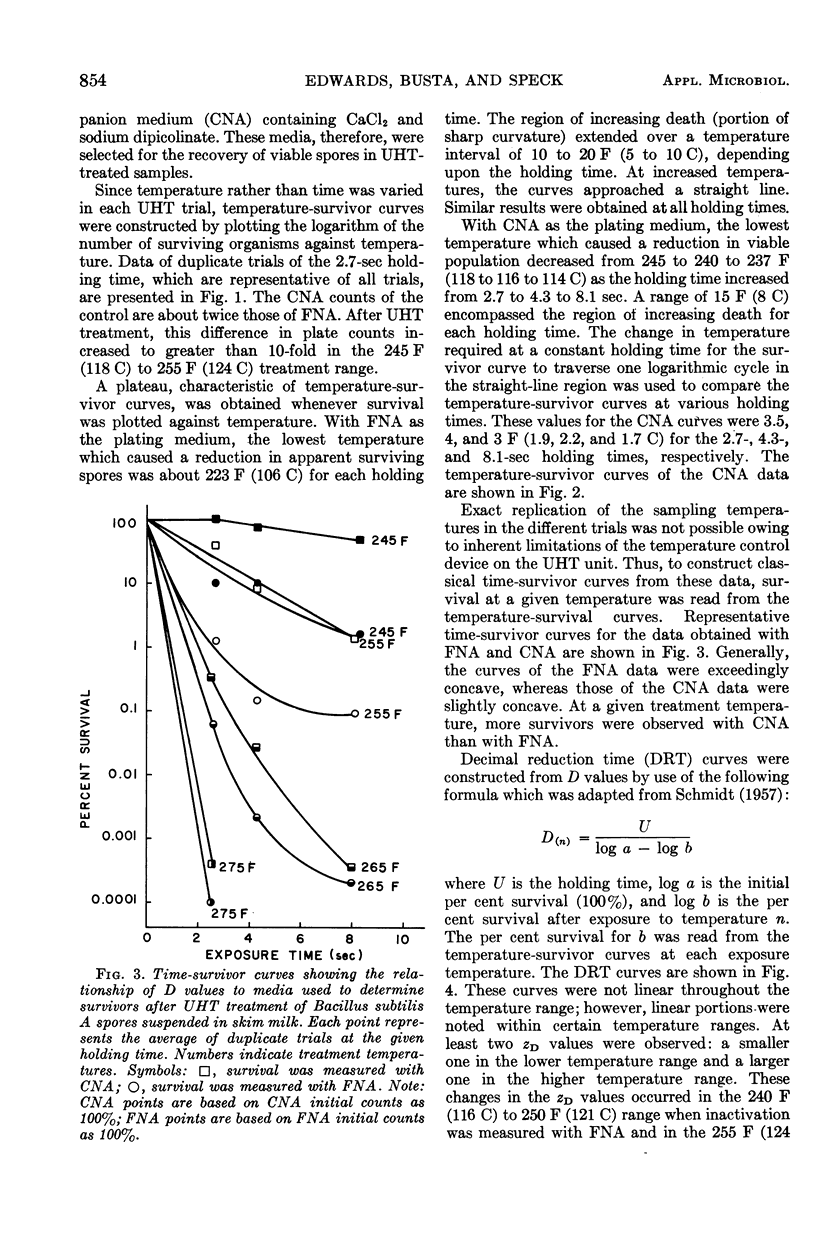
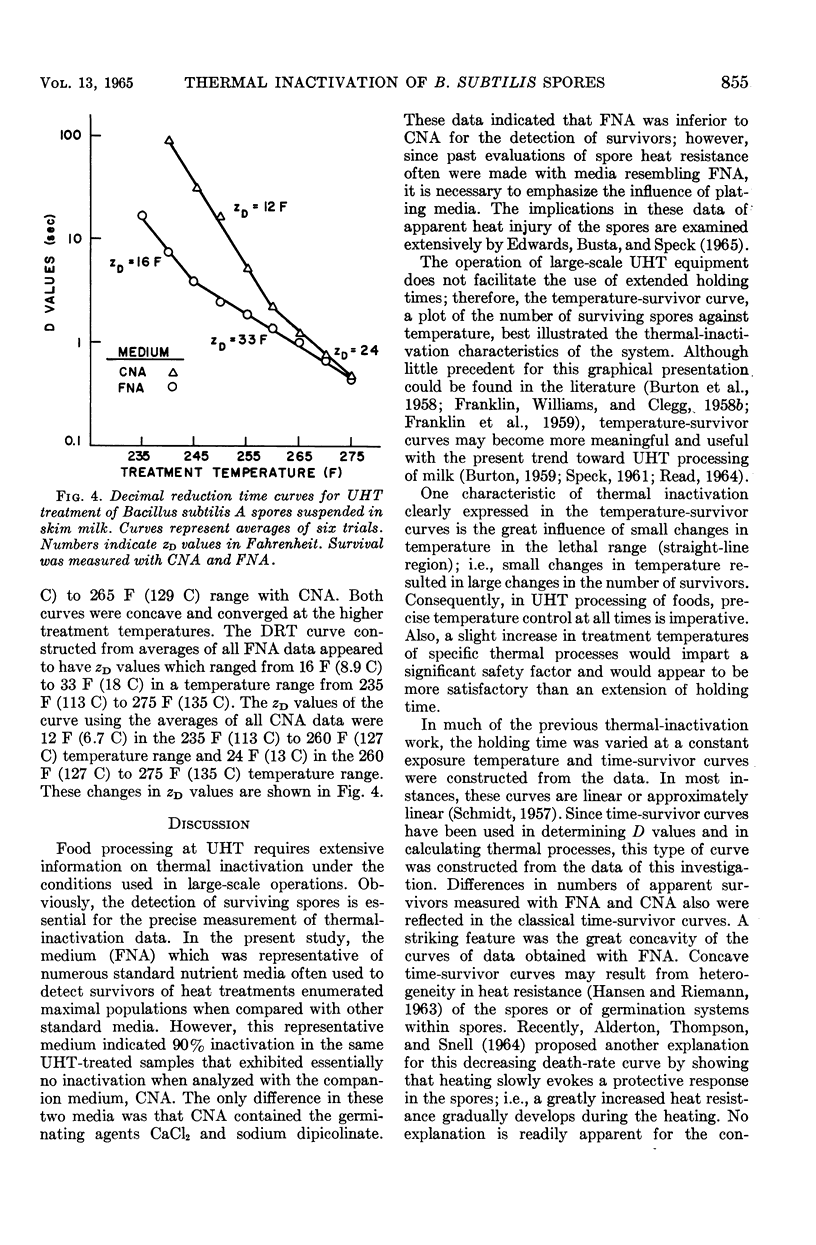
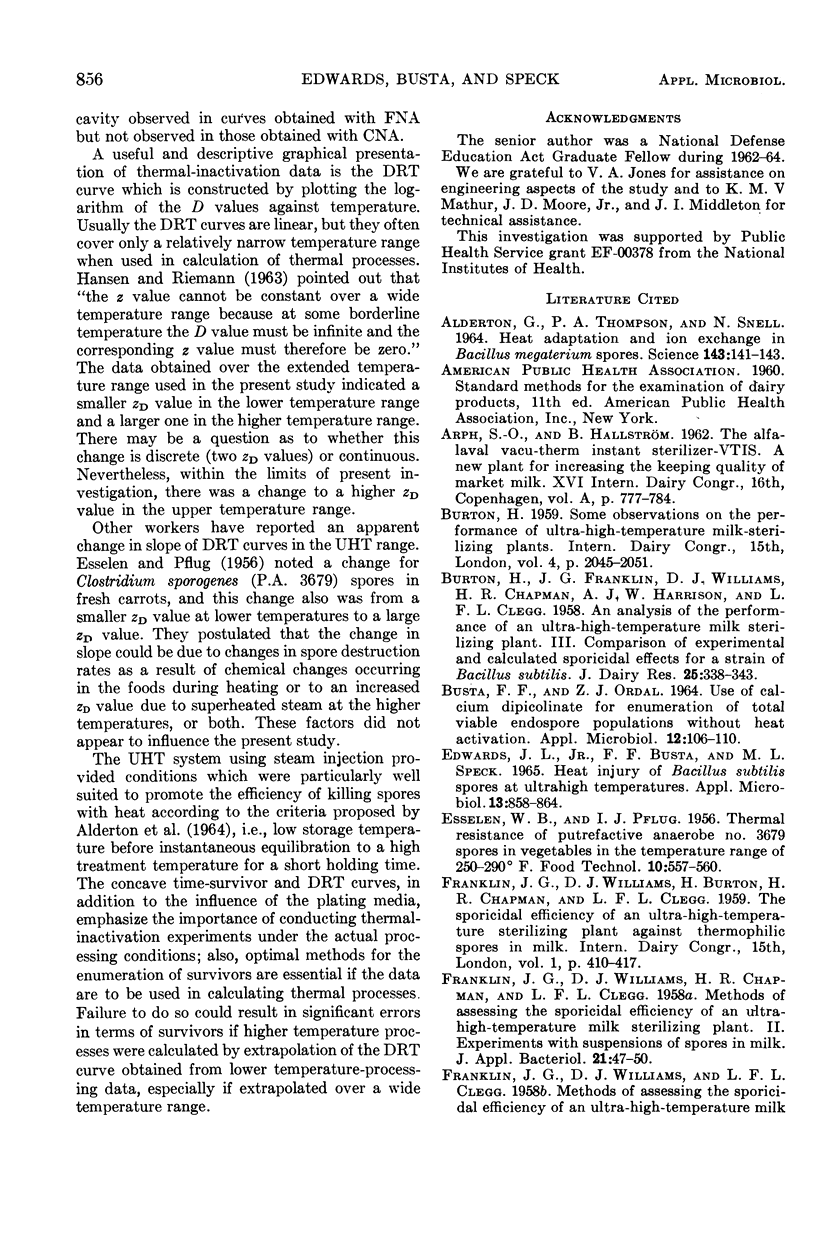
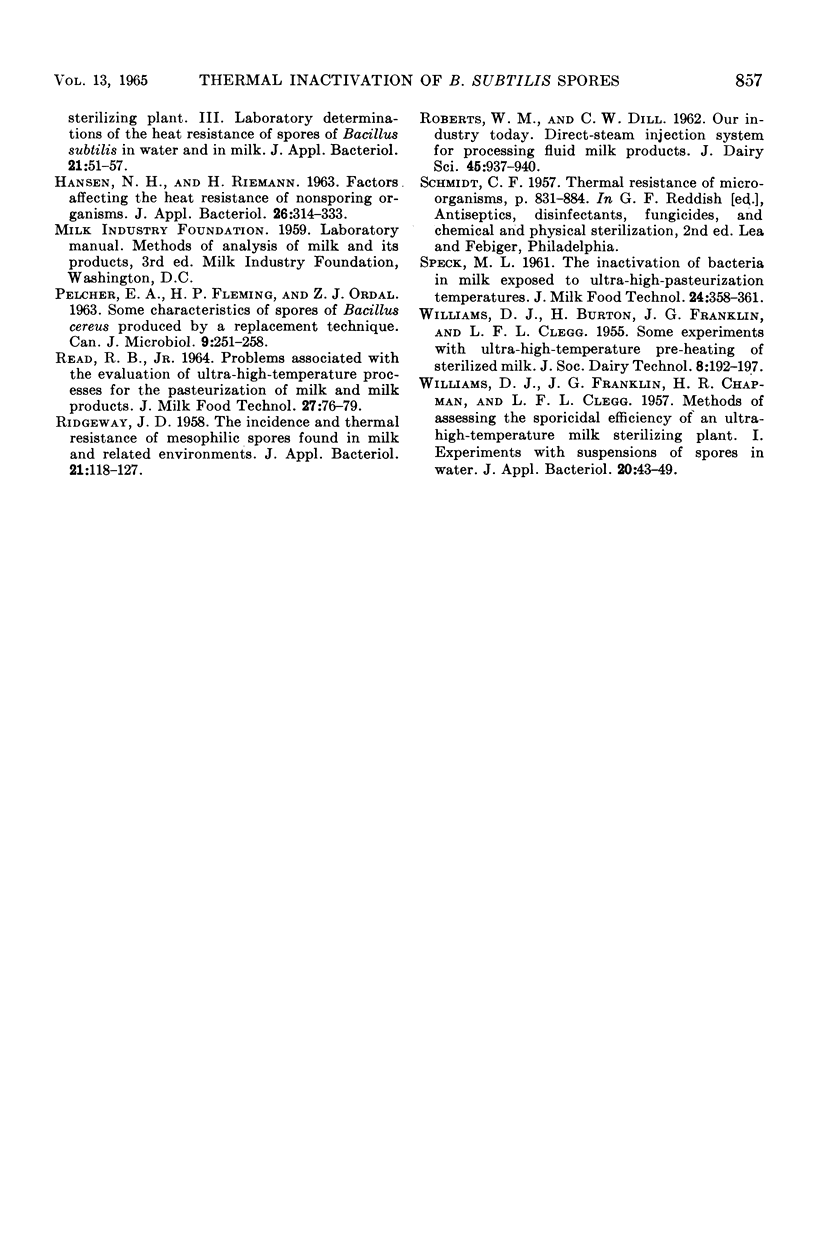
Selected References
These references are in PubMed. This may not be the complete list of references from this article.
- ALDERTON G., THOMPSON P. A., SNELL N. HEAT ADAPTATION AND ION EXCHANGE IN BACILLUS MEGATERIUM SPORES. Science. 1964 Jan 10;143(3602):141–143. doi: 10.1126/science.143.3602.141. [DOI] [PubMed] [Google Scholar]
- BUSTA F. F., ORDAL Z. J. USE OF CALCIUM DIPICOLINATE FOR ENUMERATION OF TOTAL VIABLE ENDOSPORE POPULATIONS WITHOUT HEAT ACTIVATION. Appl Microbiol. 1964 Mar;12:106–110. doi: 10.1128/am.12.2.106-110.1964. [DOI] [PMC free article] [PubMed] [Google Scholar]
- Edwards J. L., Jr, Busta F. F., Speck M. L. Heat injury of Bacillus subtilis spores at ultrahigh temperatures. Appl Microbiol. 1965 Nov;13(6):858–864. doi: 10.1128/am.13.6.858-864.1965. [DOI] [PMC free article] [PubMed] [Google Scholar]


